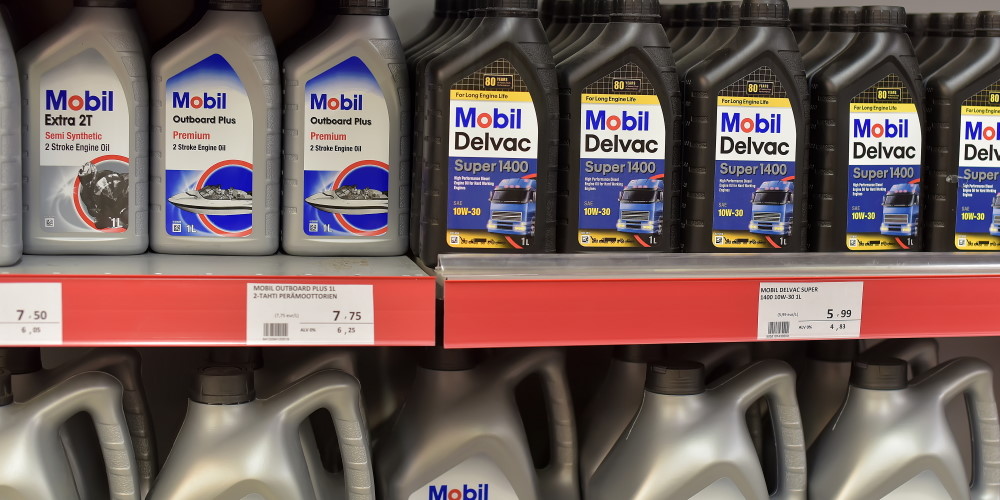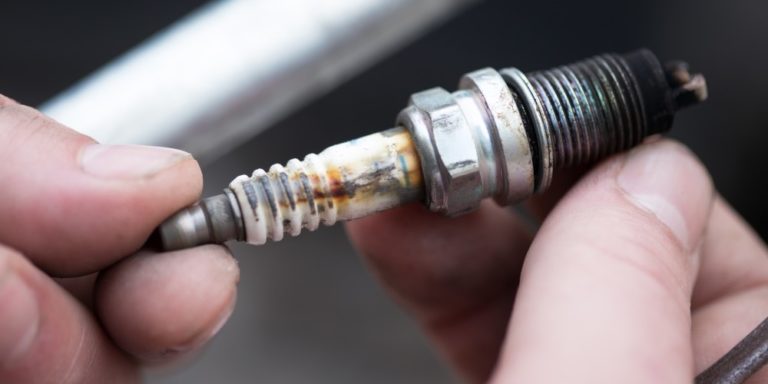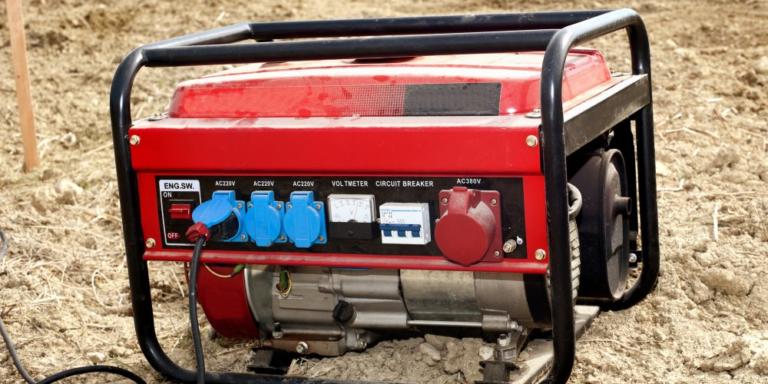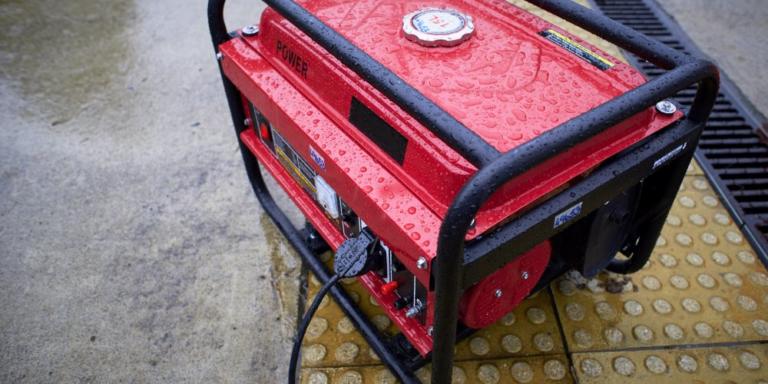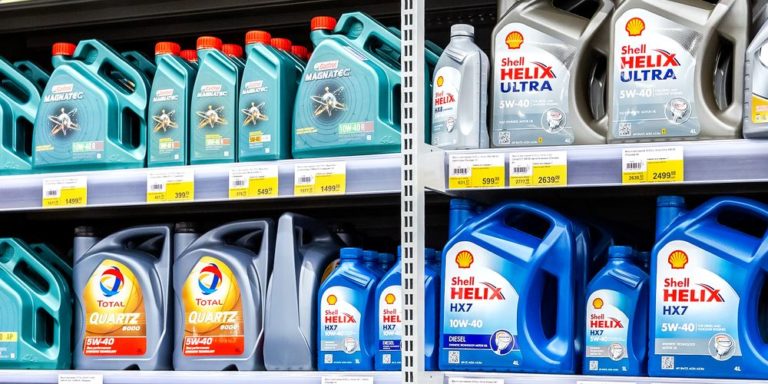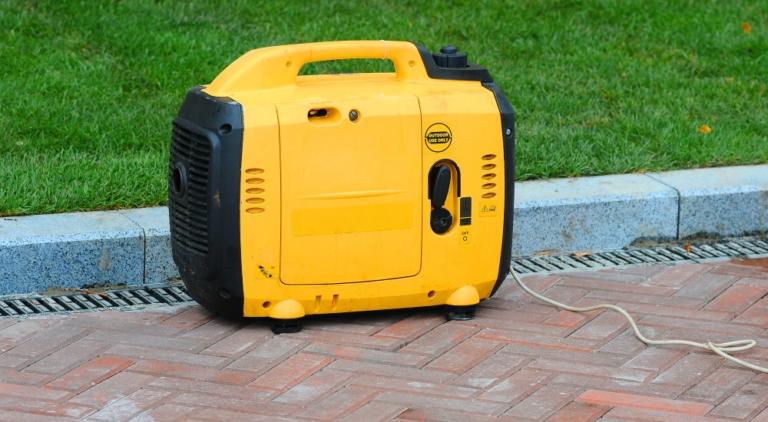Looking for the best type of oil for your Predator 2000 watt inverter generator can be confusing, but we’ve got you covered! Our team here at Generatorist has helped over 600,000 people find information about generators, and we’re here to help you too.
THE KEY TAKEAWAY:
The SAE 10W-30 oil is recommended type of oil for general use for the Predator 2000 Watt inverter generator. The oil tank capacity is 13 fl. oz. and the recommended change interval is every 6 months / 100 hrs. of use. Moreover, Predator generators don’t come with oil included, as stated in the owner’s manual.
Data for this page is based on the official manual from Harbor Freight. We will show you the type of oil for your model of Predator generator, oil capacity and links to relevant manuals. We also provide references where you can verify this info for yourself.
Oil type (info from the User’s Manual)
- General use: SAE 10W-30
- Oil capacity: 13 fl. oz.
- Break-in oil change: 30 hours of use
- Regular oil change: Every 6 months / 100 hrs. of use
Recommended DIY Videos
- Harbor Freight Predator 2000 Generator Oil Change
- Predator 2000 Watt Inverter Oil Change Step by Step
- Predator 2000 Oil Change and 100hr 6 Month Service
Owner´s manual – https://manuals.harborfreight.com
Official product page – https://www.harborfreight.com
ALL Predator Generators
Oil type (info from the User’s Manual)
- General use: SAE 10W-30 (-5 °F / +95 °F)
- Winter use: SAE 5W-30 (-30 °F / +25 °F)
- Summer use: SAE 30 (+50 °F / +105 °F)
- Oil capacity: 0.26 qt.
- Break-in oil change: 30 hours of use
- Regular oil change: Every 6 months / 100 hrs. of use
DIY Video – https://www.youtube.com/watch?v=WasTn9SfVJQ
Owner´s manual – https://manuals.harborfreight.com
Official product page – https://www.harborfreight.com
Oil type (info from the User’s Manual)
- General use: SAE 10W-30 (above 32 °F)
- Winter use: SAE 5W-30 (at 32 °F or below)
- Summer use: SAE 30 (+50 °F / +105 °F)
- Oil capacity: 0.4 qt.
- Break-in oil change: 25 hours of use
- Regular oil change: Monthly / 20 hrs. of use
DIY Video – https://www.youtube.com/watch?v=ic47Y-deSf4
Owner´s manual – https://manuals.harborfreight.com
Official product page – https://www.harborfreight.com
Oil type (info from the User’s Manual)
- General use: SAE 10W-30
- Oil capacity: 13 fl. oz.
- Break-in oil change: 30 hours of use
- Regular oil change: Every 6 months / 100 hrs. of use
DIY Video – https://www.youtube.com/watch?v=L45_gkb77Ng
Owner´s manual – https://manuals.harborfreight.com
Official product page – https://www.harborfreight.com
Oil type (info from the User’s Manual)
- General use: SAE 10W-30
- Oil capacity: 20 fl. oz.
- Break-in oil change: 30 hours of use
- Regular oil change: Every 6 months / 100 hrs. of use
DIY Video – https://www.youtube.com/watch?v=02MgpJW9b1U
Owner´s manual – https://manuals.harborfreight.com
Official product page – https://www.harborfreight.com
Oil type (info from the User’s Manual)
- General use: SAE 10W-30 (above 32 °F)
- Winter use: SAE 5W-30 (at 32 °F or below)
- Summer use: SAE 30 (+50 °F / +105 °F)
- Oil capacity: 0.6 qt.
- Break-in oil change: 20 hours of use
- Regular oil change: Monthly / 20 hrs. of use
DIY Video – https://www.youtube.com/watch?v=rmJ5sixniCM
Owner´s manual – https://manuals.harborfreight.com
Official product page – https://www.harborfreight.com
Oil type (info from the User’s Manual)
- General use: SAE 10W-30 (above 32 ° F)
- Winter use: SAE 5W-30 (at 32 ° F or below)
- Summer use: SAE 30 (+50 °F / +105 °F)
- Oil capacity: 0.6 qt.
- Break-in oil change: 20 hours of use
- Regular oil change: Monthly / 20 hrs. of use
Owner´s manual – https://manuals.harborfreight.com
Official product page – https://www.harborfreight.com
Oil type (info from the User’s Manual)
- General use: SAE 10W-30
- Oil capacity: 0.6 qt.
- Break-in oil change: 30 hours of use
- Regular oil change: Every 6 months / 100 hrs. of use
Owner´s manual – https://manuals.harborfreight.com
Official product page – https://www.harborfreight.com
Oil type (info from the User’s Manual)
- General use: SAE 10W-30
- Oil capacity: 0.6 qt.
- Break-in oil change: 30 hours of use
- Regular oil change: Every 6 months / 100 hrs. of use
Owner´s manual – https://manuals.harborfreight.com
Official product page – https://www.harborfreight.com
Oil type (info from the User’s Manual)
- General use: SAE 10W-30 (above 32 °F)
- Winter use: SAE 5W-30 (at 32 °F or below)
- Summer use: SAE 30 (+50 °F / +105 °F)
- Oil capacity: 1.16 qt.
- Break-in oil change: 20 hours of use
- Regular oil change: Monthly / 20 hrs. of use
DIY Video – https://www.youtube.com/watch?v=Xx4A1QZqm-Q
Owner´s manual – https://manuals.harborfreight.com
Official product page – https://www.harborfreight.com
Oil type (info from the User’s Manual)
- General use: SAE 10W-30 (above 32 ° F)
- Winter use: SAE 5W-30 (at 32 ° F or below)
- Summer use: SAE 30 (+50 °F / +105 °F)
- Oil capacity: 1.16 qt.
- Break-in oil change: 20 hours of use
- Regular oil change: Monthly / 20 hrs. of use
DIY Video – https://www.youtube.com/watch?v=WvZAXQ_F-aM
Owner´s manual – https://manuals.harborfreight.com
Official product page – https://www.harborfreight.com
Oil type (info from the User’s Manual)
- General use: SAE 10W-30 (above 32 ° F)
- Winter use: SAE 5W-30 (at 32 ° F or below)
- Summer use: SAE 30 (+50 °F / +105 °F)
- Oil capacity: 1.1 qt.
- Break-in oil change: 25 hours of use
- Regular oil change: Monthly / 20 hrs. of use
DIY Video – https://www.youtube.com/watch?v=WvZAXQ_F-aM
Owner´s manual – https://manuals.harborfreight.com
Official product page – https://www.harborfreight.com
Oil type (info from the User’s Manual)
- General use: SAE 10W-30 (above 32 ° F)
- Winter use: SAE 5W-30 (at 32 ° F or below)
- Summer use: SAE 30 (+50 °F / +105 °F)
- Oil capacity: 1.16 qt.
- Break-in oil change: 20 hours of use
- Regular oil change: Monthly / 20 hrs. of use
DIY Video – https://www.youtube.com/watch?v=Nga5NaOVRYg
Owner´s manual – https://manuals.harborfreight.com
Official product page – https://www.harborfreight.com
Oil type (info from the User’s Manual)
- General use: SAE 10W-30
- Oil capacity: 37 fl. oz.
- Break-in oil change: 30 hours of use
- Regular oil change: Every 6 months / 100 hrs. of use
DIY Video – https://www.youtube.com/watch?v=MlmE5og5PKc
Owner´s manual – https://manuals.harborfreight.com
Official product page – https://www.harborfreight.com
KEEP IN MIND THE OIL VISCOSITY
The most crucial feature you need to pay close attention to while choosing the engine oil for your generator is its viscosity. You can find the recommended type of oil in the Owner´s Guide or Manual.
In the case of the Predator 2000 Inverter Generator, the recommended type of oil for general use is the SAE 10W-30 oil.
In most cases, you will need an SAE 10W-30 oil type. The 10W-30 oil from Honda (1,767+ Reviews) is the best one in this category, but it’s pricey. We think that it is the best fit for most generators.
Here is our detailed comparison of 10W-30 oil vs 5W-30 oil, the second most recommended type of oil for generators.
For cheaper alternatives, check out Valvoline VR1 Racing (725+ Reviews) or Castrol Motor Oil (465+ Reviews). They offer the same performance for a better price.
The SAE acronym in the name of motor oil refers to the grading system developed by the Society of Automotive Engineers. The rest of the code refers to the oil’s viscosity at different temperatures.
The first number in the code, in this case the 10W, means how well can this oil be pumped at cold temperatures. The W refers to the word winter (not the weight).
The second number in the code means how well can the oil be pumped when heated to 212 degrees Fahrenheit (100 degrees Celsius) or higher.
Also, you should select a good quality detergent oil bearing the American Petroleum Institute (API) service classifications SJ, SL, SM, or SN.
Bear in mind this fact: If you use a different type of oil than the recommended one, you may cause premature wearing of individual engine parts.
Generator Oil Viscosity Grades: SAE 30, 10W-30, and 5W-30
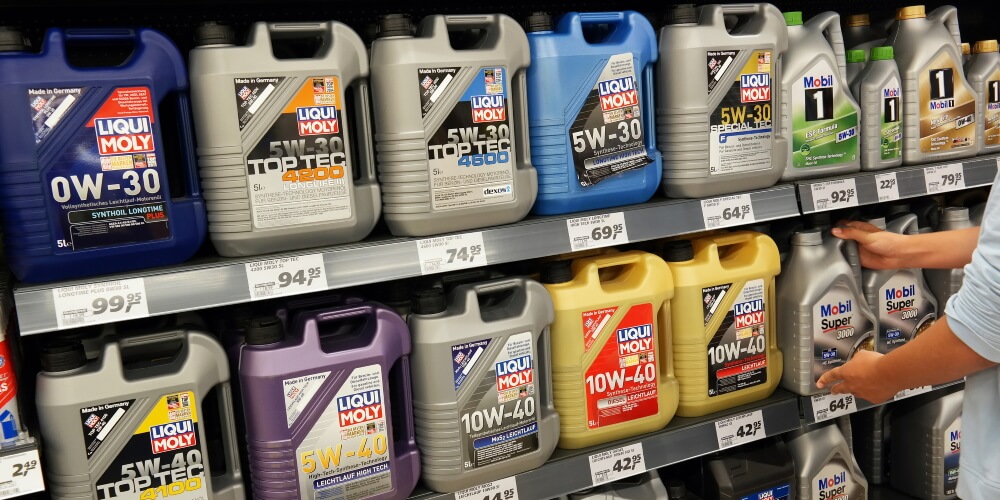
As we mentioned before, the main differences between SAE 30 oil, 10W-30 oil, and 5W-30 oil for generators lie in their viscosity grades and their performance under different temperature conditions. Let’s break it down:
SAE 30 Oil:
SAE 30 oil is a single-grade oil with a viscosity grade of 30. This means that it has a fixed viscosity level, which is appropriate for use in moderate to high-temperature conditions.
It is commonly recommended for use in warmer climates and for operating temperatures above 40°F (4°C). However, it may not perform as well in colder temperatures.
10W-30 Oil:
10W-30 oil is a multi-grade oil with two viscosity grades. The “10W” part represents the oil’s cold-weather viscosity, and the “30” part represents its hot-weather viscosity.
The “W” stands for winter, indicating that this oil has better flow properties in colder temperatures.
The “10W” means that it has a lower viscosity at low temperatures compared to SAE 30 oil, making it more suitable for use in colder climates or during the winter season. The “30” indicates its viscosity level at higher temperatures, similar to SAE 30 oil.
5W-30 Oil:
5W-30 oil is also a multi-grade oil with two viscosity grades. The “5W” part signifies that it has an even lower viscosity at low temperatures compared to both SAE 30 and 10W-30 oils.
This makes it an excellent choice for very cold climates or during extremely low temperatures, ensuring easier engine starts. The “30” indicates its viscosity level at higher temperatures, which is the same as the other two oils.
For generators, the choice of oil depends on the ambient temperature where the generator will be operated. Here are some general guidelines:
- If you live in a warmer climate and the temperature rarely drops below 40°F (4°C), SAE 30 oil should be sufficient for your generator.
- If you live in a region with fluctuating temperatures or occasional cold weather, 10W-30 oil can be a good all-season choice.
- If you live in a very cold climate with sub-zero temperatures, 5W-30 oil is recommended to ensure easy starting and proper lubrication in extremely cold conditions.
Always check your generator’s manual or manufacturer’s guidelines to see the recommended oil viscosity for your specific model, as it may vary depending on the engine design and specifications. Using the right oil will help maintain the generator’s performance and longevity.
THE IDEAL OIL CHANGE FREQUENCY
The main idea for changing the oil at regular intervals is to make your generator last as long as possible and avoid unnecessary damage.
The general rule is to change the oil after the first 20-30 hours of operation and every 100 hours of run time thereafter. With synthetic oil, you can double the run time to 200 hours.
According to the official manual, this is the ideal oil change frequency for the Predator 2000 Watt generator:
- The break-in oil change is at 30 hours
- Every 6 months of use
- Every 100 hours of use
Some generators are equipped with a run time meter, for some generators you will need to keep track of hours manually. When you are not sure of the ideal interval, just remember this:
You can’t go wrong with changing the oil sooner rather than later.
CAN I USE A SYNTHETIC OIL IN MY GENERATOR?
Yes, it’s possible to use synthetic oil in your gas generator. In theory, this type of oil should provide better coating, but this is seen only in motors with overhead valves.
Using synthetic oil is safe for your generator. In the past, there were some issues with overheating in small engines when they were first introduced. Nowadays they are completely safe.
For example, the most popular producer of generators – Honda, offers this advice:
“Honda engines are developed, tested and certified with petroleum based motor oils as a lubricant. Synthetic oils may be used; however, any motor oil used in our engines must meet all oil requirements as stated in the owner’s manual.
In addition, recommended oil change intervals must be followed.”
The main disadvantage of using synthetic motor oils in your generator is the price. These oils are much more expensive than conventional oils, but for their longevity, they are hard to beat.
HERE ARE THE BENEFITS OF SYNTHETIC OILS:
- Superior performance in extreme temperatures
- Longer service life & extended oil change intervals
- Better resistance to oxidation, thickening, and deposits
- Improved wear protection for engine components
- Higher resistance to thermal and oxidative breakdown
- Improved fuel economy & reduced emissions
Learn more about the advantages of synthetic oil by reading this article on Valvoline.com
You will still find that synthetic oil is graded in the same way, so you still need to consider the temperatures and manufacturers’ recommendations.
SIGNS OF LOW ENGINE OIL
There are several signs that may indicate low oil levels in a generator, including:
- Warning light: Many generators have a warning light on the control panel that will flash when the oil level is low.
- Unusual noises: A generator that is low on oil may produce unusual noises, such as knocking or ticking sounds.
- Reduced power output: A generator that is low on oil may not produce as much power as it should.
- Overheating: Low oil levels can cause the generator to overheat, which may lead to damage or a shutdown
- Oil pressure warning: Some generators have an oil pressure gauge that will indicate low pressure or oil pressure drop when the oil level is low.
- Engine damage: If the generator runs low on oil, it can cause damage to the engine, which will require costly repairs.
- Smoke or burning smell: If there is smoke or a burning smell coming from the generator, it could be caused by low oil levels.
It’s important to note that some generators may not have a warning system to indicate low oil levels. Therefore, it’s recommended to regularly check the oils level according to the manufacturer’s instructions.
how to change oil in your generator
Here is a step-by-step guide on how to change the oil in your generator:
- Gather the necessary equipment: You will need new oil (the correct type for your generator), a drain oil can or canister, a new oil filter (if applicable and the correct type), a clean brush and towel, protective gloves, protective goggles, a ratchet and oil filter wrench, a socket wrench (correct size), Phillips and flat screwdriver, and an oil funnel.
- Ensure safety: Put on protective gloves and goggles before starting. Make sure you have all the necessary equipment at hand.
- Warm up the old oil: Start the generator and let it run for a few minutes to warm up the old oil inside the engine, which will make it easier to drain.
- Place the generator on blocks: Get at least two identical blocks and place them on a level surface. Place the generator on the blocks so that there is free space under the oil drain plug. Make sure the generator is stable and won’t fall off the blocks.
- Unplug the spark wire: Locate the spark plug and unplug it to prevent an accidental start of the engine that has no oil in it. If you have problems locating your spark plug, consult your owner’s manual.
- Prepare for draining the old oil: Locate the oil drain plug, which is usually a 3/8″ nut with either a square or hexagonal head. The size and shape of this nut depend on the brand and model of your generator, so consult the owner’s manual to locate it. Wipe away any oil residue and grime around the drain plug and place the drain pan or empty canister underneath to catch the old oil.
- Drain the old oil: Use a socket wrench to loosen the drain plug and allow the old oil to flow into the drain pan or canister. Once all the oil has drained, clean the drain plug with a brush and towel.
- Refill with new oil: Use an oil funnel to pour new oil into the generator. Consult your owner’s manual to determine the correct amount and type of oil to use. Once the generator is filled with oil, screw the oil filler cap back on and reconnect the spark plug wire.
By following these steps, you can change the oil in your generator and ensure it runs smoothly and efficiently.
READ NEXT ON GENERATORIST:
- Choosing the Best Oil for Your Generator
- Predator Generators Spark Plug Gap & Socket Size Guide
- Predator Generators Fuel Type, Capacity & Run Time Guide
- Predator Engines Oil Type & Capacity Guide
- Choosing the Best Spark Plug for Your Generator
- How to Change Spark Plug on Your Generator
- How to Store Your Portable Generator
- How to Easily Tune Up Your Generator
- Honda Generators Spark Plug Gap & Socket Size Guide
- Honda Engines Spark Plug Gap & Socket Size Guide
- What Is an Inverter Generator & How Does It Work?
About Generatorist

Matthew Gerther
Founder, Generator enthusiast
Our aim here at the Generatorist is to become the No. 1 resource for all things related to generators & your power needs. We have helped over 600,000 visitors with our tips, articles and reviews and we will help you as well.
Our work has been featured in many publications around the world – Yahoo.com, Telegram.com, PaylessPower.com, PopSci.com, TopTenReviews.com, TechRepublic.com, iRV2.com, ThePrepared.com, Renogy.com or ADT Solar. Generators are our passion, and we strive to provide the most reliable & most comprehensive information out there.

